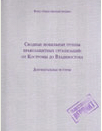

Torture in Russia: Main Problems and Measures Needed to Improve State Response to Torture
Torture, cruel or degrading treatment or punishment are prohibited by Article 21 of the Russian Constitution. But Russia's criminalization of torture as official misconduct does not meet international standards. Torture in Russia is outlawed by Article 117 of the Criminal Code (CC RF) which is not specifically applicable to officials, and by Article 302 of the CC RF which has a narrow effect in that it can be enforced against an investigating officer only if they use torture to obtain testimony. Article 286 of the CC RF is often used to hold law enforcement officials accountable for torture. Its provisions apply to abuse of office, and its part three mentions the use of violence or special devices as aggravating circumstances. In Russian law enforcement practice, torture is usually treated as abuse of office involving physical violence (Article 286, part 3, of the CC RF).
More >Brief overview of human rights violations against groups of activists in St. Petersburg and Penza
In October and November 2017, officers of the Penza branch of the Russian Federal Security Service (FSB) arrested six young men, aged twenty to twenty-seven. Some of the men were antifascist and anarchist activists. Arman Sagynbayev, Dmitry Pchelintsev, Ilya Shakursky, Yegor Zorin, Vasily Kuksov, and Andrei Chernov were jailed in the Penza Remand Prison. In December 2017, Zorin was transferred to house arrest, while the other men stayed in the remand prison. In January 2018, Ilya Kapustin, Viktor Filinkov, and Igor Shishkin were apprehended in St. Petersburg. All three men were severely tortured during their first days in FSB custody. Kapustin was released and identified as a witness in the case. Filinkov and Shishkin were named as defendants in the so-called Penza case and were sent to Remand Prison No. 3 in St. Petersburg, where they are currently in custody. According to federal criminal investigators, the accused men were members of a terrorist group known as The Network (in Russian, Set'), which was planning to overthrow the Russian government. The investigators have claimed approximately twenty young men from three Russian cities and, presumably, the Republic of Belarus, were involved in The Network. The young men have been charged with violating Article 205.4 of the Russian Federal Criminal Code, i.e., "organization of and involvement in a terrorist group." The Network never engaged in any public actions. All that is known is that the accused enjoyed playing airsoft and role-playing games, practiced surviving in rugged conditions, and went on hikes.
More >Draft Law on Foreign Undesirable Organisations vs Russia’s Obligations under International Law
In case of adoption, the Draft Law on Foreign "Undesirable" Organizations creates preconditions for fundamental human rights violations. No mandatory judicial review is required to include an organization in the special roster although such inclusion leads to serious administrative and criminal liabilities for those who continue to participate in activity of the "undesirable" organization.
More >The execution of judgments of the European Court of Human Rights concerning the effectiveness of the investigation into torture and cruel treatment committed by the police
1. The present memorandum has been prepared by a group of Russian human rights NGOs providing legal support to the victims of torture and other human rights violations committed by law-enforcement officers. Authors of the present memorandum are Krasnoyarsk Committee for Human Rights Protection, Memorial Human Rights Commission of Komi Republic, Interregional Public Organization "Committee against Torture" (Nizhni Novgorod), Regional Public Organization "Women of the Don Union" (Rostov on Don), Regional Public Organization "Man and Law" (Yoshkar Ola), Public Verdict Foundation (Moscow), Center of Civic Education and Human Rights (Perm).
More >Law-enforcement bodies VS. Civil society
Situation in the Russian law-enforcement system and its influence on human rights observance.
This analytical report has been prepared by the Public Verdict Foundation and the “Demos” Center for Information and Research on Public Interest issues (the “Demos” Center). To prepare the report we used information about violations of human rights committed by law-enforcement officers received by the Public Verdict Foundation from its partner organizations. Additionally, this report incorporates materials of sociological studies commissioned by the Public Verdict Foundation. The report is also based on materials of the research effort “Arbitrariness in Law-enforcement: Roots and Practices” that has been conducted by the “Demos” Center and its expert network in 10 regions of the Russian Federation with the support of the Ford FoundationDrafters of the report: Asmik Novikova and Olga Shepeleva (“Demos” Center) More >






